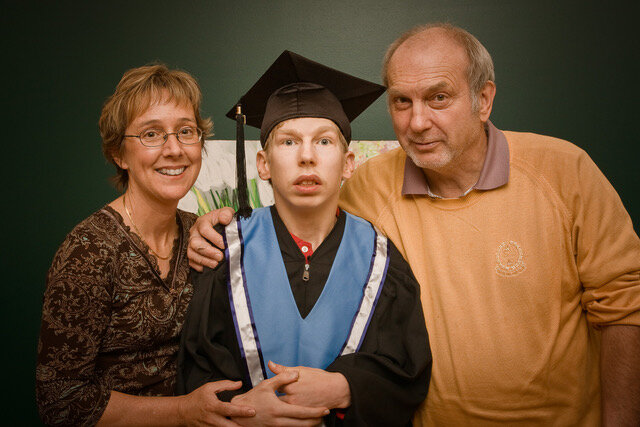Understanding Autism

What is Autism?
Autism, or autism spectrum disorder (ASD), refers to a broad range of conditions characterized by challenges with social skills, repetitive behaviors, speech and nonverbal communication. In Canada, one in 66 children and youth are diagnosed with ASD.
Austim is known as a “spectrum disorder” because there is no one single type. Autism is influenced by a combination of genetic and environmental factors, and is frequently accompanied by sensory sensitivities, medical issues like seizures, and mental health challenges such as anxiety and depression.
Each adult with autism has strengths and challenges unique to themselves—the way they learn, think and problem solve can range from highly skilled to severely challenged. Throughout their lifetime, some adults may require significant support in daily living, while others need less and may even live entirely independently.
“Parents worry about their child with autism being in elementary school or high school, but you have 60 years after they finish school that you need to figure out. That realization doesn't hit you until your child graduates from high school and then you ask, "What's next?" It's one of the scariest moments when you finally look up and see this huge horizon in front of you.”
— Kelly Kerr, Parent of a PASS Member, Founding Board Member
Resources for adults with autism are few — and those that do exist are largely insufficient
Adults with autism often struggle to thrive living vibrant, full lives—that’s because the wide range of support, resources and funding available to them suddenly disappear once they age out of the school system.
Despite having unique abilities and capacities, adults with autism are frequently pushed to the margins of our society and have only a cursory impact on the economic and social wellbeing of their community. Simply put, people with autism commonly experience poor outcomes in adulthood.
Without targeted interventions in the areas of lifelong learning, community participation, volunteering, employment, and housing, adults with autism become more vulnerable to inadequate care and a lower quality of life.
While the stigma of autism continues to linger, we know things are changing
Adults with autism have every capacity to contribute to their neighbourhoods and cities, but right now, our society is missing out on these valuable community members that provide unique richness and depth to daily life when participating at all levels of community.




